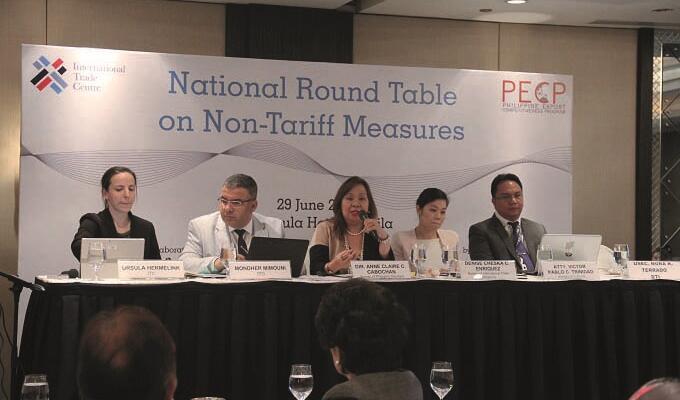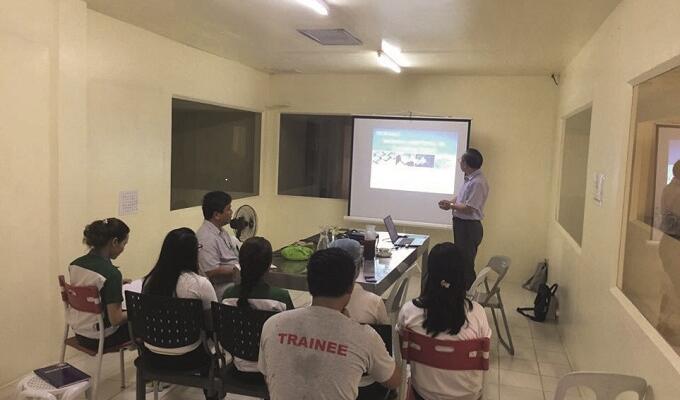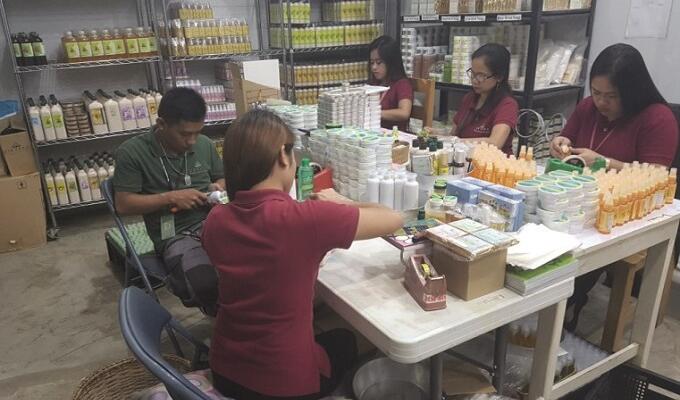


Using business surveys to help Philippine MSMEs overcome export obstacles (en)
The challenge
For companies around the world, meeting technical regulations and product standards is an increasingly important part of doing business, whether internationally or at home. Micro, small and medium-sized enterprises (MSMEs) in developing countries often struggle with the fixed costs of complying with complex and changing quality requirements in target markets.
Businesses surveyed by ITC regarding non-tariff measures (NTMs) typically report that technical requirements and conformity assessment procedures are important obstacles to export success. This was particularly true for companies in the Philippines, where almost three-quarters of the 1,150 companies interviewed in 2015 and 2016 by ITC in collaboration with the Philippines Department of Trade and Industry (DTI) said burdensome regulations were impeding their ability to trade. Almost 60% of export obstacles reported by Philippine businesses pertain to measures including product certification, testing and labelling requirements. While the regulations that businesses find burdensome typically originate from trading partners, many of the domestic procedures associated with cross-border trade are also unnecessarily complicated.
For Oryspa Spa Solutions, a Philippine health and beauty products company, the effects of high local manufacturing costs on its export competitiveness are compounded by complex documentation requirements for export procedures as well as shipping and logistics.
The response
After the business survey, ITC and DTI used the results to formulate concrete recommendations to address the trade obstacles identified, with a focus on speeding up the compliance of Philippine products with foreign regulations. The recommendations, which called for technical assistance and capacity upgrading for MSMEs to comply with testing, certification, fumigation and labelling requirements, fed into the country’s export development plan aimed at rebalancing the economy away from consumption towards investment and exports.
At the same time, ITC worked to help selected Philippine companies put the recommendations into practice. As part of its export quality management consulting initiative, in partnership with the Republic of Korea, experts from the Small & Medium Business Corp. (SBC) of the Republic of Korea were brought to the Philippines in late 2017 to provide in-depth consulting services to five MSMEs. These companies included Oryspa and Herbanext Laboratories, a Philippine producer of herbal extracts looking to break into international markets.
The experts from SBC, a government-funded non-profit that supports the growth and competitiveness of the MSME sector in the Republic of Korea, trained staff from the five companies on how to build and maintain quality management systems in line with ISO 9001, a key international standard for quality management systems. The goal was to equip the companies to improve product quality and manufacturing processes.
The results
Nora K. Terrado, undersecretary of DTI, viewed the recommendations as an exercise in collaborative evidence-based policymaking to lower domestic and external barriers to trade.
‘It is through working together that we can identify concrete projects, remedies and solutions that will enable the formulation of better policies, as well as national and sectoral action plans,’ she said. Her department has sought to respond to recommendations arising from the survey by holding seminars on fumigation and new international standards and working towards mutual recognition agreements that would allow Philippine certifying agencies to be more widely recognized in international markets.
The Philippine firms that participated in the SBC-led training expressed confidence that the training from the experts of the Republic of Korea would help them overcome export bottlenecks.
Pat De Ramos, a franchise relations officer at Oryspa, said the training would help her company improve quality management systems and corporate culture; it is now refining its key performance indicators.
Philip S. Cruz, president of Herbanext Laboratories, said the training on improving plant layout and sanitation would help the company get better at meeting international quality requirements. One of the techniques dealt with implementing 5S methodology, a Japanese-pioneered workplace organization method designed to maximize efficiency and safety while minimizing waste.
‘It is through working together that we can identify concrete projects, remedies and solutions that will enable the formulation of better policies, as well as national and sectoral action plans.’ Nora K. Terrado, Undersecretary, Departement of Trade and Industry, Phillippines
The future In addition to the Philippines, ITC’s export quality management consulting initiative is providing training to MSMEs in Peru, similarly informed by the lessons learned from business surveys on NTMs. Continuing the model of triangular cooperation, SBC of the Republic of Korea will continue to provide advisory support, broadening it to new businesses and countries upon request. NTM survey findings will be used to tailor training activities and identify companies likely to benefit from it.




